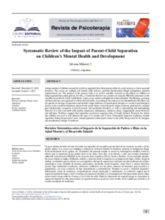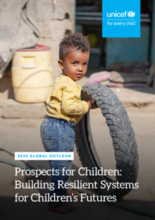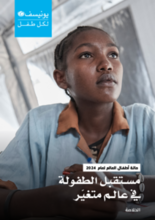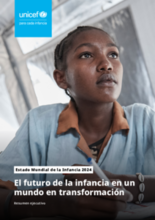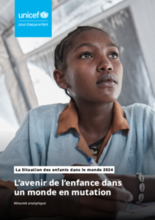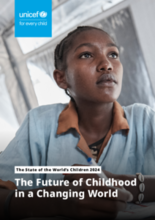Displaying 21 - 30 of 1343
This systematic review of open-access research examined the effects of parental separation on children, identifying a wide range of adverse outcomes including neurological changes, trauma, abuse, poor academic performance, mental health disorders, and risky behaviors. The risk is highest between ages 9 months and 9 years, particularly when separation is abrupt, occurs in preschool years, involves care by strangers, or coincides with a change of residence.
This report examines the global sexual abuse and exploitation of care leavers, highlighting how systemic failures, both within institutions and during the transition to independence, leave young people vulnerable to harm, including cross-border trafficking and online exploitation. It calls for urgent action to strengthen safeguarding, ensure comprehensive aftercare, and create survivor-centered justice systems to protect care leavers’ rights, dignity, and long-term wellbeing.
Prospects for Children in 2025: Building Resilient Systems for Children’s Futures is the latest edition of the Global Outlook, a series of reports produced each year by UNICEF Innocenti – Global Office of Research and Foresight, which look to the key trends affecting children and young people over the following 12 months and beyond.
يتناول هذا التقرير ثلاث قوى عالمية قوية وطويلة الأمد (أو اتجاهات كبرى) ستترك أثراً عميقاً على حياة الأطفال من الآن حتى عام 2050، وهي: التحولات الديموغرافية، وأزمات المناخ والبيئة، والتقانات الرائدة. وبفهم هذه الاتجاهات وتداعياتها على الأطفال، يمكننا أن ندرك بشكل أفضل التحديات والفرص التي تنتظرنا.
El informe examina tres megatendencias o grandes fenómenos mundiales y a largo plazo que tendrán importantes efectos sobre las vidas de los niños y niñas de aquí a 2050: los cambios demográficos, las crisis climáticas y medioambientales y las tecnologías de vanguardia. Si entendemos estas tendencias y lo que implican para la infancia, comprenderemos mejor los retos y las oportunidades que se nos pueden presentar.
Pour ce faire, ce rapport examine trois grandes tendances, à savoir trois forces puissantes qui s’inscrivent dans la durée à l’échelle mondiale et qui auront de profondes répercussions sur la vie des enfants entre aujourd’hui et 2050: les changements démographiques, la crise climatique et environnementale et les technologies d’avant-garde.
This report examines three powerful, long-term global forces – megatrends – that will profoundly affect children’s lives between now and 2050: demographic shifts, climate and environmental crises, and frontier technologies.
The report explores three megatrends that will profoundly impact children’s lives between now and the 2050s: demographic shifts, the climate and environmental crises and frontier technologies. It also presents three future scenarios – possible outcomes, not predictions – for how children could experience the world of 2050.
On November 20, 2024, the Evidence for Impact Working Group as part of the Transforming Children’s Care Collaborative hosted the "Building Evidence to Impact Care Reform - Challenges and Le
On November 20, 2024, the Evidence for Impact Working Group as part of the Transforming Children’s Care Collaborative hosted the "Building Evidence to Impact Care Re

